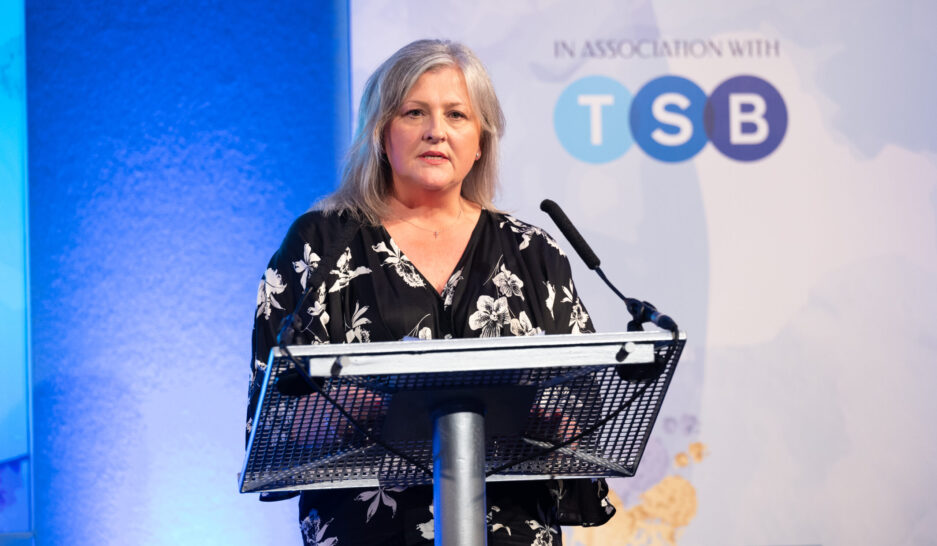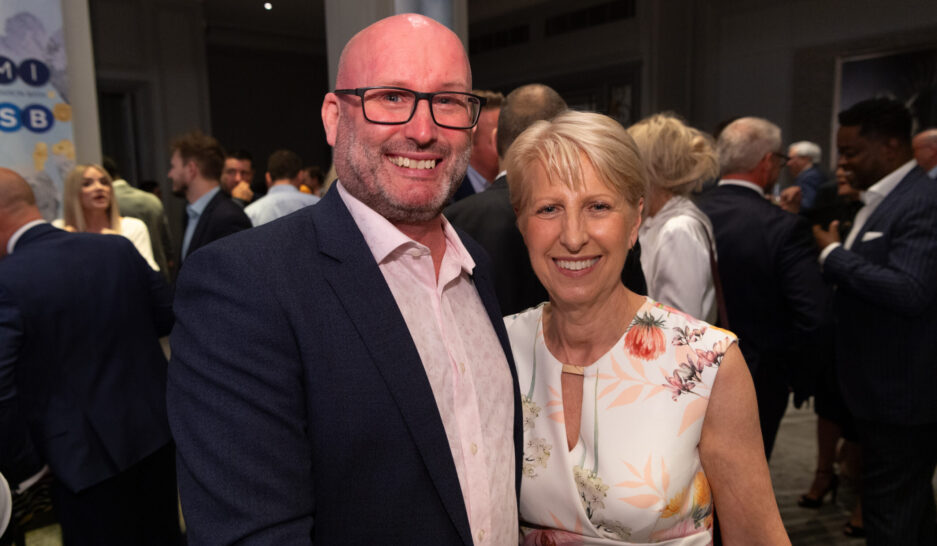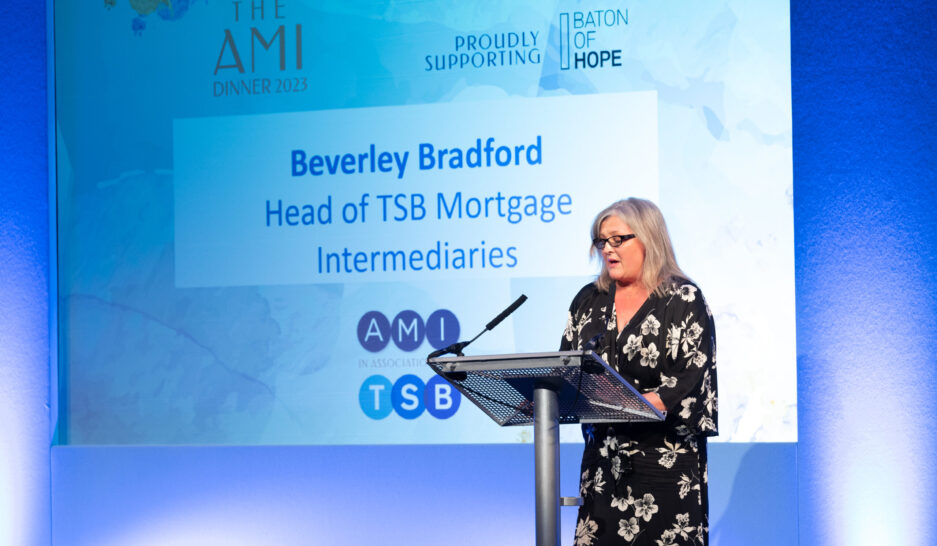


MIMHC details wellbeing programme for mortgage sector in 2024
The mental health and wellbeing events will aim to engage with signatories to the charter and those yet to join.
This will be kicked off with the MIMHC’s annual wellbeing survey, which assesses the mental health of people working in the mortgage industry. The insights will be used to form initiatives and support strategies for firms.
Andrew Montlake, co-founder at MIMHC and managing director of Coreco, said: “Our action-packed schedule for 2024 reaffirms MIMHC’s commitment to promoting the mental health and wellbeing of everyone working in our industry.
“By promoting awareness, starting appropriate conversations and fostering a supportive environment, MIMHC is leading the way towards a healthier and happier workplace for us all.”
The results will be compiled into a white paper that will be published during Mental Health Week, which runs from 13 to 19 May. This year’s event will focus on the importance of physical activity and the MIMHC will organise ‘Walk and Talk’ sessions.
Jason Berry, MIMHC co-founder and group sales director at Crystal Specialist Finance, will lead a sponsored 144-mile walk from Tamworth, West Midlands, to Canary Wharf, London, to coincide with Mental Health Awareness Week.
Berry (pictured) said: “This journey symbolises MIMHC’s dedication to promoting physical activity and raising awareness about mental health issues.
“I hope as many mortgage industry professionals as possible will join me along the route from Crystal Specialist Finance’s office, in Tamworth, to HSBC’s headquarters in Canary Wharf.”
The MIMHC will bring back its ‘Mindful Mondays’ initiative, where time is allocated for industry professionals to meet for a monthly coffee and chat. This is to promote a sense of community and the importance of forming relationships.
The ambassadors of MIMHC will also be advocating for mental health awareness at mortgage club and network events across the year. The organisation will also host regional meetings and hold a charity dinner on 10 October, which is World Mental Health Day.
Montlake added: “This diverse range of initiatives and events will enable us to create lasting change within the mortgage sector by fostering a culture of support and understanding surrounding mental health issues.
“I hope as many colleagues as possible will get involved – and sign up to our Charter, if they haven’t already done so.”
Last year, MIMHC launched a signatory steering group.



Change Maker: Andrew Montlake, managing director, Coreco
Andrew Montlake is a well-known figure in the mortgage industry with over thirty years of experience. He has been managing director of Coreco for nearly five years, a company he has graced for a decade and a half. Prior to that, he had stints with Colbalt Capital and John Charcol.
He is currently chairman of the Association of Mortgage Intermediaries and is an advocate for diversity and inclusivity (D&I) in the industry as well as a passionate support of mental health initiatives. All of this led to his nomination as a Mortgage Solutions‘ Change Maker.
Why were you nominated for the Change Makers initiative?
I think overall it’s for my obvious passion and commitment to helping to affect change in the industry rather than one specific reason.
As chair of the Association of Mortgage Intermediaries (AMI), being part of the D&I steering group, together with a phenomenal team of like-minded people, I am very proud of all we have achieved with the whole diversity and inclusivity programme, as well as being an active member of the excellent Mortgage Solutions Diversity and Inclusivity Finance Forum (DIFF).
It’s something that I am personally very passionate about, and everyone can see that in the speeches I do or columns I write.
I do try and speak out about how the industry should change and what we should do and how we can be more inclusive. It’s a bit of a duty for me to do this in an industry that’s given me so much. I want to give back and help the next generation of people within the industry who’ve got so much to offer but, for some reason, have either been passed over or neglected.
How is the mortgage industry doing in terms of diversity and inclusivity?
I’ve been in the industry a long time and I’ve seen a change. Although we’re nowhere near where we need to be, we have got so much better.
When I started in the industry, you’d go to a function and you could count the number of women on one hand, it was very male orientated. And norms of behaviour were very different to how it is today.
When we did the AMI Viewpoint, it opened a can of worms. And that’s what we wanted to do. There are people who feel disconnected from the industry, which is so wrong. We have an obligation to make sure no one feels sidelined or alone in this industry.
Looking back [personally], I’ve had antisemitic comments, seen someone fired because they were pregnant, or heard comments around mental health, – the whole ‘man up’ attitude – and whilst it is changing it needs to change more quickly.
In terms of diversity, at Coreco, as we are based in London, diversity has never been as much of an issue as it might be in some other areas of the country. But if we want to represent our client base properly, we need to have a representative broker base. And that’s what we try and do, we’ve never recruited anyone other than on their merit, and we have a 100 per cent female senior management team.
We’ve always embraced diversity naturally. And my view has always been that if you’ve got the same type of people around the table, what’s the point? You need lots of different views. Its all about culture add rather than culture fit.
What kind of practical aspects have you put in place?
Mental health is an issue I am passionate about. At Coreco, we were one of the founding members of the Mortgage Industry Mental Health Charter. That’s something that we really have embraced. And that was something very important to me, in an industry that’s very stressful.
Being a broker can be quite a lonely, stressful existence sometimes, especially since the pandemic, where I think there’s been a bit of a mental health explosion, because people didn’t have the camaraderie around them from going into an office every day. Problems were magnified.
We’ve trained up mental health first aiders within our business, and it’s something we talk about a lot at presentations because it’s about reminding people that it’s okay not to be okay.
From a diversity perspective, how is the industry doing?
It’s going well but there is much more to do. There’s a core of great people from all types in the industry who are passionate about making change. For example, we are making headway in terms of who is invited to events, and how these are conducted.
I don’t think the same people with poor behaviour traits should be invited just because they are big business writers or contributors.
And we are making some headway with recruitment but, as an industry, we need to look at how we appeal to females or ethnic minorities.
For example, in the way we advertise roles. One thing I learned early on is how a female candidate would look at a recruitment ad compared to a male.
If there are 10 points on the job description, a man may look at it and say ‘I can do three of them really well, and I’ll pick up the rest later’ and they might apply anyway. However, a female candidate would look at the ad in a different way and may be put off applying for the role if they didn’t feel they could do 90 per cent of the points.
And this is possibly the same with someone from an ethnic minority background. They could look at the About Us page on a company website and not see anyone who looks like them, certainly not in any high positions, so will wonder if their progression will be stifled and therefore won’t apply for the role.
It’s about making sure that you have positive statements that you’re an equal opportunities employer, and even if someone thinks they can’t do some parts of the role, they should still apply. As an industry, we need to think a bit more about recruitment, and be aware of our unconscious biases.
It will take a while before we really start to see more diversity at board and managing director level, but that’s where we need to get to. Inclusivity means that everyone has a voice and that should be at board level. We don’t need dinosaurs with outdated views anymore.
How did it feel being nominated as a Change Maker?
I had tears in my eyes. It’s great to get awards and things like that, and every single one means a lot to me, but I think this was being recognised for, at least, trying to make a difference. That means something. And I’m prouder of that than anything.



BoE pause in base rate rises a ‘welcome relief’ for borrowers – industry reaction
The BoE maintained central bank rate at 5.25 per cent, halting the 14 consecutive rate hiking cycle that began at the tail-end of 2021.
Vikki Jefferies, proposition director at Primis Mortgage Network, said that today’s decision was a “welcome relief for borrowers already struggling with the cost of living crisis and high interest rates”.
She continued that this would “accelerate the price war”, with many lenders cutting their rates in recent weeks and fixed rate mortgages in some cases falling below five per cent.
“Nonetheless, rates remain significantly elevated when compared to the rock-bottom rates of recent years, and brokers will need to help consumers adjust their expectations of what a ‘new-normal’ for interest rates may look like.
“It’s unlikely that rates will return to the historic lows of one and two per cent any time soon, and this should now be factored into any decisions about affordability moving forward,” Jefferies added.
She urged brokers to offer education and context to “empower consumers to make informed decisions around products, particularly as the rate landscape continues to evolve”.
Mark Harris, chief executive of mortgage broker SPF Private Clients, agreed, adding that consecutive rate rises have been “painful” and “it’s time to leave alone for now, rather than causing continued anxiety and distress for borrowers”.
He agreed that while the “days of rock-bottom mortgage rates are long gone” pricing is expected to improve in the coming weeks with more sub-five per cent deals coming to the market.
“Supply is outstripping demand, which will drive down rates and swaps, which while still a little volatile, are trending downwards. While we know this can all change again on the back of negative data, for now the outlook is much more promising than it was three months ago,” Harris explained.
However, he warned that borrowers coming off cheaper fixed rates would face a payment shock, making it important to plan ahead. Harris said that borrowers were opting for shorter-term fixed rates and base rate trackers with no penalties “in the hope that they can fix for longer once rates become more palatable”.
Lender price war bodes well for 2024
Andrew Montlake, managing director of Coreco, said that it looks like we have reached the “very top of the interest rate cycle” and swap rates were “continuing to ease”.
He continued that this was “giving lenders more space to engage in a rate war as they battle for market share and look to get a good start to 2024”.
“As this competition increases, we will see more products available starting with a four rather than a five and this will inevitably start to encourage more buyers back into the market as they seek to take advantage of the buyers’ market while it lasts,” Montlake added.
Richard Campo, founder of Rose Capital Partners, agreed that it looked like we are nearing the peak of this current cycle which could increase confidence for buyers.
“The seemingly endless rate rises from the BoE were causing borrowers to procrastinate on committing to their new remortgage deals and putting off some would-be homebuyers completely.
“This could even bolster house prices as we have seen huge pent-up demand in recent months from people holding buying off until mortgage costs stabilise,” he added.
Samuel Bull, senior mortgage adviser at Huddersfield-based mortgage broker, JB Mortgages added: “I am hopeful that in 2024 mortgage lenders will start competing for market share with rates starting with a four, rather than a five.
“This will no doubt encourage more buyers back into the market as they seek to take advantage of the ‘buyers’ market’ whilst it lasts.”
Affordability could still be ‘clear obstacle’
John Phillips, CEO of Spicerhaart and Just Mortgages, said that while the news was a “positive” for mortgage holders and the general public, the cost of living would still have an impact on affordability.
He explained: “While yesterday’s good news on inflation certainly made the pause more palatable for the Monetary Policy Committee, there’s no question high household costs – particularly fuel, food and energy, still present a challenge. As a result, affordability will remain a clear obstacle for both borrowers and brokers.
“Brokers will continue to play a critical role by using all the tools available to help clients make the numbers work, whether that’s the many households still set to remortgage or those that need to move. Lenders have played their part in recent weeks to reduce rates considerably and news of stability in interest rates may allow lenders to loosen the purse strings a little further,” he added.



DIFF podcast: If I could do it again, I’d spend more time with family, not working – Montlake
Speaking on the Diversity and Inclusivity Finance Forum (DIFF) podcast he said as a working parent, “there is a lot of juggling to do” and added that he “felt like a bit of a failure” when it came to his family life in terms of being present as a father, particularly in his children’s younger years.
He said while the pressure on working mothers needed to be addressed, the issue is also important to working fathers.
Montlake said personally, he found it hard to get away from the idea that he needed to work all the time and look after people while running a business.
He said it could be confusing for men as they did not know whether they were “meant to be the traditional alpha male who goes out and earns a crust and looks after their family. But then they also have to be the new type of man – which I believe you should be – which is sharing responsibilities and doing things together and being sensitive to everything else,” he added.
Montlake said he spoke to a lot of men who said they would lie about having to do the school run and pretend to have a meeting or claim to be unwell instead.
“Anything that doesn’t suggest that you have to go home and look after kids because it was frowned upon for a man to do that,” he added.
Montlake said this dilemma and uncertainty about identity contributed to stress and the rising suicide rate among men. If he could do it again, Montlake would “learn from my mistakes and spend a lot more time in the family home rather than just being obsessed with working”.
Montlake said he now tried to create this environment at Coreco where employees were encouraged to put their families first.
Challenges at all ages
Esther Dijkstra, managing director of intermediaries at Lloyds Banking Group, said when her children were younger the routine helped her as a working parent.
“It’s the transition periods that make it really hard,” she added, mentioning that school holidays made it difficult to get back into a routine. She said schools were also not geared up for both parents working because they tended to organise events during the day.
Dijkstra said: “It was very hard for the children because we have no family living close, so our children were always the only ones who didn’t have a parent present at sports day, didn’t have mum present at [the Mother’s Day] tea party. Trust me, I tried to make it in the six to eight years they were both at primary and I never made it.”
She said with her job it was not logistically possible, particularly if she was travelling or speaking at a conference as she could not “let hundreds of people down”.
She said this did not become easier over time as while Dijkstra had to arrange childcare when they were younger, when they were older the “problems tend to get bigger”.
Dijkstra added: “That then takes time because it’s very ad hoc because you either have to attend school meetings or other things to sort it out or be there.
“The guilt is then really bad because you constantly battle with the ‘if I had been there more, would it not have happened?’ and you do feel judged.”
Workplace culture
Dijkstra said Montlake was being “hard on himself” and was not a “failed father” and agreed that it was important to signal the importance of her family life at work so people saw her as a whole person.
She said it was important for companies to be flexible so parents could manage one-off events but when it came to regular duties such as the school run, there needed to be a “balanced discussion” because it should also be fair for non-parents and other carers as everybody might need “ad hoc flexibility at some point in their life”.
Montlake said since the pandemic, he noticed “discontent” among non-parent employees when flexibility was given to parents.
He added that it was a battle to balance how to bring people back into the office while retaining flexibility, particularly for those who needed it.
Dijkstra said there needed to be more of a focus on outcomes rather than presenteeism or how many hours are put into a job and agreed it was not easy to figure out.
Host Danielle Moore, operations director at AE3 Media, raised the financial challenge of arranging childcare and keeping children entertained during the summer holidays, as well as the impact of that on parent employees.
Dijkstra said summer holidays were a “total utter nightmare” because the routine was broken and that was “sometimes all you’re hanging on to when you have a full-time career”. She said it was too short to find another routine, so parents ended up “limping through it”.
She said the timings of summer holiday activities did not align with regular school timings either which added another difficulty and as a working mother, she never managed to form enough of a connection with other parents to share the childcare load.
Montlake said this was the first summer holiday that was really challenging as his kids were not interested in doing anything.
Listen to the podcast [34:35] hosted by Danielle Moore, operations director at AE3 Media, featuring Esther Dijkstra, managing director of intermediaries at Lloyds Banking Group and Andrew Montlake, managing director of Coreco.



Aldermore makes three pledges around broker service
The lender has pledged to offer one full working day’s notice of any product withdrawal and offer 10 days to convert from a decision in principle into a full mortgage application.
Aldermore will also allow a customer to select a cheaper rate for a client at any time up to completion with no charge for the broker or the client.
The firm added that it would contact brokers up to six months before a client’s deal matures to help brokers support customers in their next steps.
Nicola Goldie, head of strategic partnerships at Aldermore, said: “Whilst lenders are doing their best to react to an unpredictable market, it’s vital that we work together and offer brokers as much notice as possible when making changes to our product ranges.
“We know first-hand just how difficult brokers are finding it right now. Hopefully these three pledges provide much-needed certainty and clarity for them.”
Andrew Montlake, managing director of Coreco, added: “I’m thrilled to see Aldermore showing its commitment to the broker market and really listening.
“Brokers desperately need reliability and clear communication from lenders, for their own benefit as well as for their clients. In an ideal world we’ll start to see more lenders committing to these sorts of pledges in the near future.”



Labour calls emergency broker summit on mortgage market ‘turbulence’
Earlier this week, Shadow Chancellor Rachel Reeves (pictured) and Lisa Nandy, Shadow Secretary for Levelling Up, said that they would meet brokers to hear about how increasing mortgage rates were hitting first-time buyers and homeowners and discuss potential solutions.
Nandy said on Twitter: “It was good to hear from brokers and financial advisers at our emergency summit today about what they’re seeing in the mortgage market.
“The government cannot continue to stand by while they and families across the country battle the turbulence of this mortgage crisis.”
Reeves added: “Today at our emergency summit we heard first-hand from mortgage brokers of the despair caused by the Tory mortgage bombshell.
“Only Labour has a long-term plan to fix the housing crisis for buyers, renters and homeowners alike.”
Reeves had said earlier this week that Labour would look at bringing out a mortgage insurance scheme where the state acts as a guarantor for those struggling to save for a deposit, reform planning and boost housebuilding. She added that it would explore long-term fixed rates.
Representatives from small and large broker firms attended
The event was chaired by Andrew Montlake, managing director of Coreco and chair of the Association of Mortgage Intermediaries.
Topics discussed at the event included how brokers are dealing with their clients, real client stories of those facing higher mortgage costs, ideas for the present and future mortgage sector, overall housing market, rate withdrawals from lenders, product innovation and issues first-time buyers have getting on the property ladder amongst others.
At the meeting, Montlake said: “It is very important that you hear the opinions of mortgage brokers who are the ones on the front line, dealing with people’s issues and fears, helping them to find a way through the mortgage maze and advise them on the best ways forward for them.
“The work brokers do and the advice they give has never been more crucial, important and valued. We are trusted by clients like no one else in the home ownership journey.”
He continued that he welcomed this “refreshing, forward-thinking approach, and look forward to this being the start of a professional working relationship that can help guide and formulate policy that will help real people on the ground”.
Montlake noted that the cost of living crisis, inflation and ever-increasing rate hikes “hurt the same group of people each time, forcing lenders to reprice often with little or no notice”.
He added: “I would hope that together we can look for alternative ways forward.”



‘Blanket call’ for 24-hour withdrawal notice periods could cause ‘huge issues’, AMI chairman says
Speaking at the AMI dinner last night, Andrew Montlake (pictured) said that with his “broker hat on” it would be “remiss of me not to support the call for as much notice as possible”.
He continued: “I am a broker, I suffer like others suffer, like the other practitioners on the AMI board. I watch how it affects the lives and mental health of our brokers. Extensions to midnight are not the solution.”
Montlake said 24 hours’ notice would be “great” but AMI was “not naive enough not to also recognise the huge issues this can cause for our lender partners as well as the stresses and strains it puts on your staff as well”.
He explained: “A blanket call for more notice could cause other issues and sometimes we need to be careful what we wish for. We do not want the lenders to feel like they have to take rates higher earlier or see lending become cautious and difficult.
“There is a solution somewhere in the middle, and we remain open to work together for the best interest of us all.”
Montlake continued that AMI does “incredible work on behalf of brokers and the team works tirelessly and respectfully behind the scenes to represent brokers’ interests” and he was proud to be associated with it.
He said: “You are being represented and sometimes it may be frustrating, but it’s only by working together and understanding both sides you have chance to affect real change.
“We do have so much work to do and it is a journey but I fundamentally believe our industry can be a shining light and I will never ever lose that passion and drive, however long it takes and whatever criticism I get along the way.”
Brokers need to start putting Consumer Duty ‘plans into action’
Montlake praised the work that AMI was doing on Consumer Duty, pointing to its various factsheets and podcast which offers information and advice, as well as mythbusting common misconceptions about the upcoming regulation.
“While the overriding aims of this is of course laudable, I can’t help but think that the time and money would be better spent looking for the real cowboys who will now doubt continue to ignore whatever changes come their way rather than forcing more work onto firms who are trying to do the right thing every day,” he noted.
Montlake continued: “It’s time for all those who have not thought about this seriously to put their plans into action.”
He thanked the Financial Conduct Authority for their “continued openness and engagement” on Consumer Duty and other regulatory subjects.
“The sign of a good relationship is where we can both fight for our respective views to be heard, sometimes vehemently, but always with the respect and knowledge that our views will be taken seriously and we will not fall out,” Montlake added.
Montlake said that AMI had some “great success” with reducing fees for member firms, which he said would allow firms to invest more of their “hard-earned income” back into the company and their people. He noted that AMI would “keep a watching brief” on this issue.
Insurers can be more innovative on protection
Montlake said protection was “still an important foundation” of AMI’s purpose and its third Viewpoint report on this would be coming out soon.
“It shows that there is still more that there is still more work to be done to engage both brokers and clients of the importance of a fully-protected mortgage.”
“I still feel that some insurers can do more, such as more modern products that consumers understand, new ways of marketing, fairer costings and engender more consumer trust in claims stats. This is a work in progress that we will continue to pursue,” he added.



AMI Dinner 2023: the night in pictures
The event was sponsored by TSB, with speeches from Andrew Montlake, chairman of AMI, and Robert Sinclair, chief executive of AMI.
The charity for the evening was Baton for Hope, which aims to be the biggest suicide awareness and prevention initiative in the UK and was launched last year.
Thanks to all who attended and please find the highlights below.



Residential property transactions fall to lowest level since October 2021 – HMRC
The seasonally adjusted number showed this was also eight per cent lower than the previous month.
On a non-seasonally adjusted basis, transactions fell by 32 per cent annually to 67,220 and dropped by 29 per cent against March.
HMRC said the downward trend had resumed in April following a spike in transactions in March. It attributed the higher activity in March to the larger number of working days during the month and the last round of purchases completed through the Help to Buy scheme.
Transaction levels between January and March this year were also lower than before the pandemic, with 270,000 transactions completed compared to 283,540 in 2020.
Fresh market uncertainty will suppress activity
Andrew Montlake, managing director of Coreco, said it was no surprise that transactions were lower than a year ago.
He added: “In recent months, we have seen the market begin to awaken from its prolonged slumber, with buyers returning and getting used to the new mortgage rate environment. That, of course, was before the latest inflation figures caused swap rates and therefore mortgage rates to start to increase again. This will undoubtedly have an effect on buyer affordability, mortgage choice, and therefore transaction levels going forward.
“With many hoping the second quarter would be the start of a new normal market, this now looks like it will be pushed back to the third quarter. If the Bank of England panics and puts rates up much further, this could have a profound effect on the housing market.”
Craig Fish, managing director at Lodestone, said the market was seeing normal levels of activity in April and May, but the recent “turmoil” hinted at stagnation ahead.
He added: “We have already had some clients tell us that their property plans are on hold until things settle down. Further rate rises could continue to dampen property transactions, but the hope is that as inflation drops, conditions will improve and we could see a strong end to 2023, which should continue into 2024.”
Mike Scott, chief analyst at Yopa, suggested that the transactions levels coupled with “disappointing inflation figures” could mean that “the housing market slowdown is likely to be longer and deeper than we originally anticipated”.
Karen Noye mortgage expert at Quilter, added: “While the economic path is starting to look a little more predictable and we had seen an uptick in transactions in March, April’s figures show a return to the buoyant market we had grown accustomed to is not yet on the cards.
“House prices have been slowly declining in recent months, reflecting the decreased level of demand, and we can expect them to continue falling steadily for a few months yet as sellers compete for buyers.”
A market boost needed
Some industry professionals suggested that external help could drive activity in the property market.
Andy Sommerville, director at Search Acumen, said technological development and investment would be a benefit.
He added: “These circumstances make it obvious that more needs to be done to support the property market’s resilience. Not only are higher mortgage rates pricing people out of their moves, but professionals themselves also face ongoing challenges undertaking the transaction.
“Move timelines are now upwards of 150 days, having increased by a third from the 100-day average seen in 2019. This leaves ample room for fall-throughs, upping the pressure on shrinking sectors like conveyancing.”
“It is imperative that we give property lawyers and all stakeholders within the transaction chain access to cutting edge, cohesive technology as the new normal to get the job done with greater ease and efficiency,” Sommerville said.
Alex Lyle, director of estate agency Antony Roberts, also felt that conveyancers needed support, adding: “One issue is how long everything is taking – it is hard to remember a time when deals took so long to progress from agreed to exchange of contracts. As well as chains being more protracted, many solicitors are finding themselves working at capacity.”
Tomer Aboody, director of MT Finance, suggested that the government step in. He said: “With transactions on a downward trend, some stimulus is needed to encourage sellers to come to market, and downsizers in particular.
“With a general election in 18 months’ time, it would be a good way for the government to boost the economy and get the property market thriving once more.”



Mental health support ‘cannot afford to be tokenistic’ – Montlake
The Mortgage Industry Mental Health Charter was launched in 2021 and offers guidance and a framework for firms to support staff’s mental wellbeing.
Co-founded by Brightstar, Chartwell FS, Coreco, Crystal Specialist Finance, Knowledge Bank, Landbay and SimplyBiz Mortgages the charter releases an annual survey of mortgage brokers’ mental health.
The latest survey has shown an improvement in mental health but brokers report that working hours are still long, sleep is inconsistent and work-life balance is varied.
Speaking to this publication, Andrew Montlake (pictured), managing director of Coreco, said: “I think the fact that we’re actually having these surveys and the people are on, the people are happy to talk about it now.
“It’s a real step forward, and the more people and leaders who are able to talk about mental health and their stories of how it affects them that helps take the pressure off other people who might be feeling the same.”
Work-life balance and working from home ‘concerning element’ of survey
Montlake said there were some “concerning elements” of the report, such as work-life balance and working from home.
The survey showed that 58 per cent of brokers polled worked more than 45 hours a week and 24 per cent said brokers felt their work life balance had worsened.
Montlake said some people have embraced working from home full time and are more productive, but others could find it more “lonely” and “isolating”, which could aggravate poor mental health.
He added that working from home full time meant that signs may not be as easily picked up by coworkers so poor mental health could “snowball”.
“It’s about making sure that that you’re talking to people and figuring out what suits them best. Some people can be left alone, working in a hybrid environment, whereas others need extra support.”
Every business should discuss mental health and have a mental health first aider
Montlake said businesses should not “shy away” from talking about mental health and in the next year every business should “at least have a discussion of the presentation or mental health”, possibly using the survey as a backdrop.
“I’d like to see every business have at least one of their people trained as a mental health first aider. I think those are really simple first steps,” he added.
“There’s an increase in the brokers feeling overwhelmed and they’re still not getting enough sleep. I think people forget sometimes that a brokers’ job can feel like it is a 24/7 job, because you always want to be there for your clients.
“There always seems to be some kind of issue, especially the period that we’ve been going through, which I do believe is the hardest period since the credit crunch in terms of how it feels to actually work in this industry, there needs to be more places that people can go to get support,” he explained.
Mini budget having delayed impact on mental health
Montlake said Q4 last year was “awful” because there was “panic”, and brokers had to “calm people down” and deal with “people who wanted to make knee-jerk reactions”.
“There was confusion all over the place and that turned into a lack of business because people didn’t know what to do and some people wanted to delay their things,” he said.
Montlake said that for many brokers November, December and January were quite slow, and whilst activity had “started to pick up” in the start of the year, there was the delayed consequence from lower levels of business not being written several months ago.
“If you look at about now, there might be a lot of brokers feeling that worried about their banking levels because they didn’t write as much five or six months ago, and that creates some financial worries, especially if they are self-employed,” he added.
He said several brokers he had spoken to said it “feels like they’re working twice as hard for half the amount right at the moment”.
Lenders and brokers should work together on mental health
Montlake said “working together” with lenders was crucial to “understand the key points that really affect brokers’ happiness, stresses and livelihoods”.
He said it would be “very easy” to say that all lenders should offer 48-hour notice for products being withdrawn but from a lending point of view that “isn’t feasible”.
“Is there some way we can go working together as lenders and brokers to try and identify some of the issues that are occurring which has had a dramatic effect on mental health,” he added.
He pointed to the Association of Mortgage Intermediaries (AMI) report on diversity and inclusion and Diversity and Inclusivity Finance Forum (DIFF) as two areas where lenders and brokers have shown they can “work really together”.
“Mental health is probably another area where lenders and brokers need to work together better to try and come up with solutions that mean things are a bit easier,” he said.
Priority is to ‘get people engaged’
Montlake said a key priority for the MIMHC was to “get people engaged” and “to make sure that we are we are starting to have an effect”.
He pointed to people participating in the surveys and talking about mental health more openly, which he said was already occurring.
“It’s a topic that is now coming up more and more and people aren’t afraid to talk about it [mental health]. It is making sure that the message of ‘it is okay not to be okay’ is out there and companies recognise that,” Montlake said.
He continued: “We can’t afford for this to just be tokenistic. I want firms involved who are actually going to do something and are truly committed to following the ideals and the guidelines. Mental health is something that you can’t afford to be tokenistic about because that has serious consequences.”




































































































































